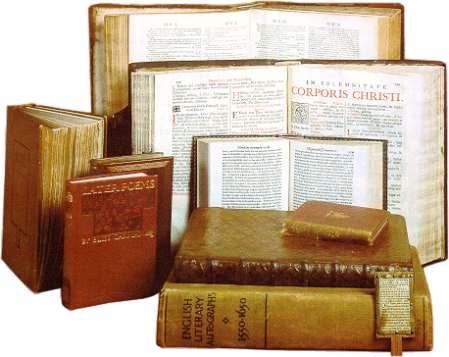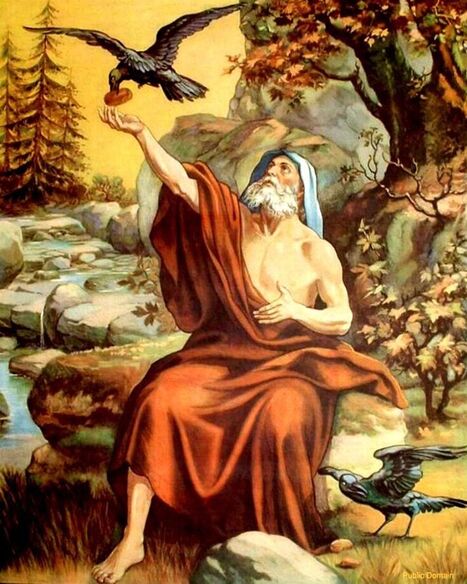Romans 11:1-10
Lesson 304
Read both the "King James Bible" and the "New Living Translation."
In this lesson:
God has mercy on Israel.
A remnant of Jews accepts God's grace (11:5).
God has mercy on Israel.
A remnant of Jews accepts God's grace (11:5).
The prophet Elijah by Otto Semler.
Who was -
Elias -
Elias (Greek for Elijah) is perhaps the most famous of Israel's prophets, for no other is mentioned as often in the New Testament. Elias came from Tishbeh in Gilead, was devoutly religious, and prepared Israel to accept God. After the breakup of Israel in 931 BC, Elias (Elijah) preached against the growing paganism and idol worship under King Ahab and his gentile wife, Jezebel. God gave Elias the power to perform miracles (2 Kings 1:9-14; 2:8), and he caused the rain to stop for three and a half years (1 Kings 17:1; James 5:17). Elias ascended into heaven without dying in "a chariot of fire" (2 Kings 2:11). He had the high honor of standing with Moses at Jesus' side during the transfiguration (Matthew 17:1-13; Mark 9:2-8). Over four hundred years before the birth of Christ, the Old Testament promised that Elias would return just before "the day of the Lord" (Malachi 4:5-6). To learn more, see 1 Kings 17:1-20, 1 Kings 18:1-46, and 2 Kings 1-2.
Baal - The foremost pagan god of the Phoenicians. Baal's followers sacrificed infants to him and placed the remains in jars. Elias called for Israel to repent and brought these murderers to justice (I Kings 18:40).
Elias -
Elias (Greek for Elijah) is perhaps the most famous of Israel's prophets, for no other is mentioned as often in the New Testament. Elias came from Tishbeh in Gilead, was devoutly religious, and prepared Israel to accept God. After the breakup of Israel in 931 BC, Elias (Elijah) preached against the growing paganism and idol worship under King Ahab and his gentile wife, Jezebel. God gave Elias the power to perform miracles (2 Kings 1:9-14; 2:8), and he caused the rain to stop for three and a half years (1 Kings 17:1; James 5:17). Elias ascended into heaven without dying in "a chariot of fire" (2 Kings 2:11). He had the high honor of standing with Moses at Jesus' side during the transfiguration (Matthew 17:1-13; Mark 9:2-8). Over four hundred years before the birth of Christ, the Old Testament promised that Elias would return just before "the day of the Lord" (Malachi 4:5-6). To learn more, see 1 Kings 17:1-20, 1 Kings 18:1-46, and 2 Kings 1-2.
Baal - The foremost pagan god of the Phoenicians. Baal's followers sacrificed infants to him and placed the remains in jars. Elias called for Israel to repent and brought these murderers to justice (I Kings 18:40).
Study Tip:
Whenever you encounter a difficult passage, scroll back and forth between the "King James Version" and the "New Living Translation" below.
Whenever you encounter a difficult passage, scroll back and forth between the "King James Version" and the "New Living Translation" below.




